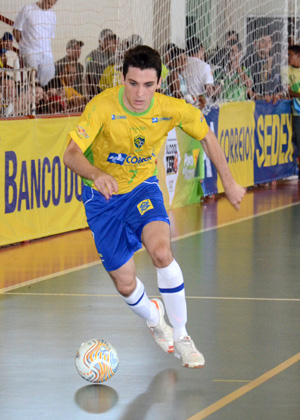Editor's note: Jon Auerbach is a partner at Charles River Ventures, a 42-year-old, early-stage venture firm based in Menlo Park and Cambridge, Mass., where he focuses on mobile technologies. Follow him on Twitter @jgauerbach.
Research over the past two decades has identified a strong link between hours of practice and expertise in sports, chess and the performing arts. In the early 1990s, Anders Ericsson, a psychologist at Florida State University, spent months tracking violinists at the Music Academy in Berlin. He found that the top violinists had practiced on average 10,000 hours during the course of their lives. The weakest violinists had averaged 4,000 hours.
This 10,000-hour "rule," cited in Malcolm Gladwell's "Outliers," is now accepted as gospel among a segment of society that believes that hours logged for young athletes and musicians is the key to success. The core of the argument is that only through what is called "deliberate" practice can the 10,000 hours pay off. By this, the experts mean practicing in the right conditions with the right motivation, mentorship and potential for eventual success. Simply studying piano for 10,000 hours isn't enough to ensure greatness. Deliberate practice is the key.
I've spent some time exploring 10,000 hours in entrepreneurship and whether the theory might be fungible. The essential argument is that behind many great entrepreneurs is a life spent, sometimes inadvertently, practicing deliberately. Some of the world's best entrepreneurs were the kids running lemonade stands, building LEGO robots and hacking computers.
When Deliberate Isn't Necessarily Deliberate
 But deliberate practice doesn't always follow textbook rules. Sometimes it comes inadvertently. One of the best examples is cited by Daniel Coyle in "The Talent Code." Coyle tells the story of Simon Clifford, a gym teacher from Leeds, England, who traveled to Brazil in 1997 to better understand why the Brazilians were so good at soccer.
But deliberate practice doesn't always follow textbook rules. Sometimes it comes inadvertently. One of the best examples is cited by Daniel Coyle in "The Talent Code." Coyle tells the story of Simon Clifford, a gym teacher from Leeds, England, who traveled to Brazil in 1997 to better understand why the Brazilians were so good at soccer.
While conventional wisdom had held that the main factors were poverty, soccer as a dominant national sport and a good climate, Clifford found that until the late 1950s, the Brazilians were not a soccer powerhouse. But during that decade, Brazil became obsessed with a type of indoor soccer called futsal. The game is played with a smaller, heavier ball in a much tighter indoor space. Because the ball is heavy and small, it can't be kicked in the air easily. As a result, precision in passing is key.
In one minute of futsal, the average player passes six times as much as in a minute of regular soccer. And in soccer, passing precision is key in separating great from good. So inadvertently, the Brazilians were acquiring the right soccer skills through futsal in a much more deliberate way than if they had been training on large, outdoor fields. In 1958, Brazil won the World Cup, beginning a dynasty of soccer domination.
Inadvertent Deliberate Practice: Entrepreneur-Style
The theory of 10,000 hours of practice translates into generally 10 years of roughly 20 hours per week. If the same holds true for entrepreneurs, then kids need to be building things and selling things in middle school to hit their stride in their mid-twenties. Further, there's an argument that young entrepreneurs rarely have 20 hours a week in their teen years to practice their craft, so getting to 10,000 hours might take more like 15 or 20 years.
If the same holds true for entrepreneurs, then kids need to be building things and selling things in middle school to hit their stride in their mid-twenties.
The entrepreneurial world is full of compelling stories of great innovators putting in their 10,000 entrepreneurial hours. While other kids at Homestead High in Cupertino were playing football, Steve Jobs was building a "phone phreak" device that tricked the AT&T long-distance system into letting people make free calls. Bill Gates spent much of his time at the Lakeside School programming on leased-time GE and Digital Equipment computers, including writing code that allowed them to obtain free computer time. This led to a ban of computer use for Gates and three other students.
Larry Page claims that at age 12 he knew he would someday start a business. He would spend countless hours tinkering with computers and writing code, and he was the first student in his elementary school to turn in an assignment on a word processor. In middle school, Mark Zuckerberg wrote a computer program that connected computers at his father's dental practice to machines in the Zuckerberg home.
Soccer is not learned from sitting in a classroom; it's learned by kicking a ball over and over. The 10,000-hour theory is just that: a theory. But if it holds water, there are some pretty compelling implications for how (and whether) entrepreneurship can be taught, where best to acquire skills and how to think about funding models.
[Image via Flickr here and here.]
No hay comentarios:
Publicar un comentario